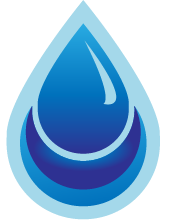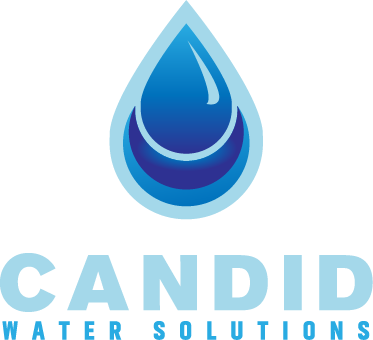FAQ's

WE HAVE ANSWERS TO YOUR WATER TREATMENT QUESTIONS
Frequently Asked Quetions
What is hard water, and how can I tell if my home has it?
Hard water contains high levels of calcium and magnesium. Signs of hard water include spots on dishes, soap scum in sinks and dry skin and hair after bathing.
How does a water softener work?
A water softener uses ion exchange technology to replace calcium and magnesium ions with sodium or potassium ions, softening the water.
What are the benefits of installing a reverse osmosis system?
Reverse osmosis (RO) systems remove contaminants like chlorine, lead and fluoride, improving the taste and safety of your drinking water. There are ancillary benefits to having an RO system, like no longer needing to spend money purchasing bottled water or filling gallons at water kiosks. This can also drastically reduce your home’s plastic waste and eliminate the health risks posed by microplastics present in bottled water.
Are whole-home systems that much better than the disposable cartridges for ice and water dispensers in my refrigerator?
The disposable cartridges in your fridge are not particularly effective because, without reverse osmosis technology, they can’t remove many impurities from your water. RO removes more than 95 percent of the minerals in water and also offers viral protection. Water softener systems remove over 90 percent of the hardness in your water, improving your home’s infrastructure, fixtures and appliances and also your interior and exterior health.
The cartridges in your fridge do not have any effect on hardness. They only offer basic purification of the water coming out of the dispenser, and at a much less effective level than an RO system.
Do I need a whole-home water purification system?
Every home in the Phoenix metro area can benefit from a standard home water softener and under-sink RO system.
A standard point-of-entry water softener keeps your home’s plumbing and appliances safe from scaling and protects your clothes, dishes, skin and hair from all the negative effects of hard water.
The under-sink RO system provides a host of benefits, like no longer having to buy bottled water, reducing plastic waste and being able to drink better tasting and safer drinking water.
These two systems can provide adequate protection for some households, but they are just the starting point. There are many other potential layers of protection that can be added to your system depending on your preferences and budget. Some of the extra features include:
● UV filtration
● Lead removal
● PFOS and PFAS filtration
● Activated carbon
● And much more
The cost difference between the entry-level softener and RO purification system and a system with many added layers of water treatment protection can be significant, but Phoenix homeowners can choose from a variety of customization options at different price points. Our team would be happy to explain the different features that can be added, the benefits they provide and how much different enhancements will cost.
How often do I need to replace the filters in my reverse osmosis system?
Typically, RO filters need to be replaced every 6 to 12 months, depending on usage and water quality. Candid Water Solutions is always ready to help with filter supply and RO system services.
What maintenance is required for a water softener?
The salt levels in the brine tank should be monitored and refilled as needed. Although some homeowners will be able to handle monitoring and some maintenance themselves, many will prefer to leave it to experienced professionals. We are always happy to assist with periodic cleaning and annual servicing.
Can hard water damage my appliances?
Yes, hard water can cause scale buildup in dishwashers, washing machines, ice and water dispensers in fridges, bathroom faucets and showerheads and water heaters. Homeowners sometimes take for granted just how many separate appliances and fixtures they have that can suffer reduced longevity, efficiency and performance due to scale and calcium buildup. Water softeners can end up saving you a lot of money on premature replacement and ensure everything from showers to the feel of clothes after washing is enhanced.
Can I install a water treatment system myself, or do I need a professional?
While some RO systems can be DIY installed, it’s not always recommended. Professional installation ensures optimal performance and warranty protection. Water softeners are another matter. They require some specialized knowledge and typically can’t be tackled by the average homeowner.
What is the difference between a water softener and a water filter?
A water softener removes hardness minerals, while a water filter removes contaminants and impurities.
Will a water softener affect the taste of my water?
Some people may notice a slight change due to sodium or potassium in softened water, but it generally improves water quality. Combining a water softener with a reverse osmosis (RO) system can reduce the effects of a water softener on taste by removing the sodium or potassium in softened water. This can be accomplished either with an under-sink RO system for drinking and cooking or with a whole-home water purification solution.
Are there any environmental benefits to using a water treatment system?
Yes, the benefit is typically two-fold. Many Phoenix families rely on bottled water for drinking. Having an RO system installed allows you to switch entirely to reusable bottles, eliminating your household’s plastic bottle waste (which can also drastically reduce your family’s microplastic intake). Water softeners can enhance appliance efficiency and contribute to environmental sustainability.
Can a water softener help with skin conditions?
Soft water can reduce skin irritation and dryness, providing relief for some skin conditions. However, you shouldn’t rely on a water softener to improve medical conditions. Always consult with your doctor or dermatologist. If they recommend you look into a water softener, Candid Water Solutions would be happy to help with the system installation.
What is involved in a water quality assessment?
Our experts test your water for hardness, contaminants and other factors to recommend the best treatment solution.
Do water treatment systems require electricity?
Most water softeners and some RO systems are powered by electricity, although the usage is typically low compared to many other appliances.
How can I tell if my water treatment system is working properly?
You will be able to tell the difference in both taste and feel after you have an RO or water softener installed. If something stops working, you will likely notice based on taste and the effects of having hard water returning. However, having your water periodically tested can help ensure everything is still working and your water is safe.
What should I do if my water tastes or smells strange?
Contact Candid Water Solutions for a water quality test. We can quickly diagnose the issues affecting your home water and develop a solution to address them.
How long do water treatment systems last?
With proper maintenance, water softeners and RO systems can last at least 10 or 15 years. Many last for multiple decades.

CONTACT US TODAY TO LEARN MORE
Request a Water Softener or Reverse Osmosis System Installation Estimate
Enjoy safe, clean water that’s ideal for cooking, bathing and cleaning at a price that makes sense for your family.

